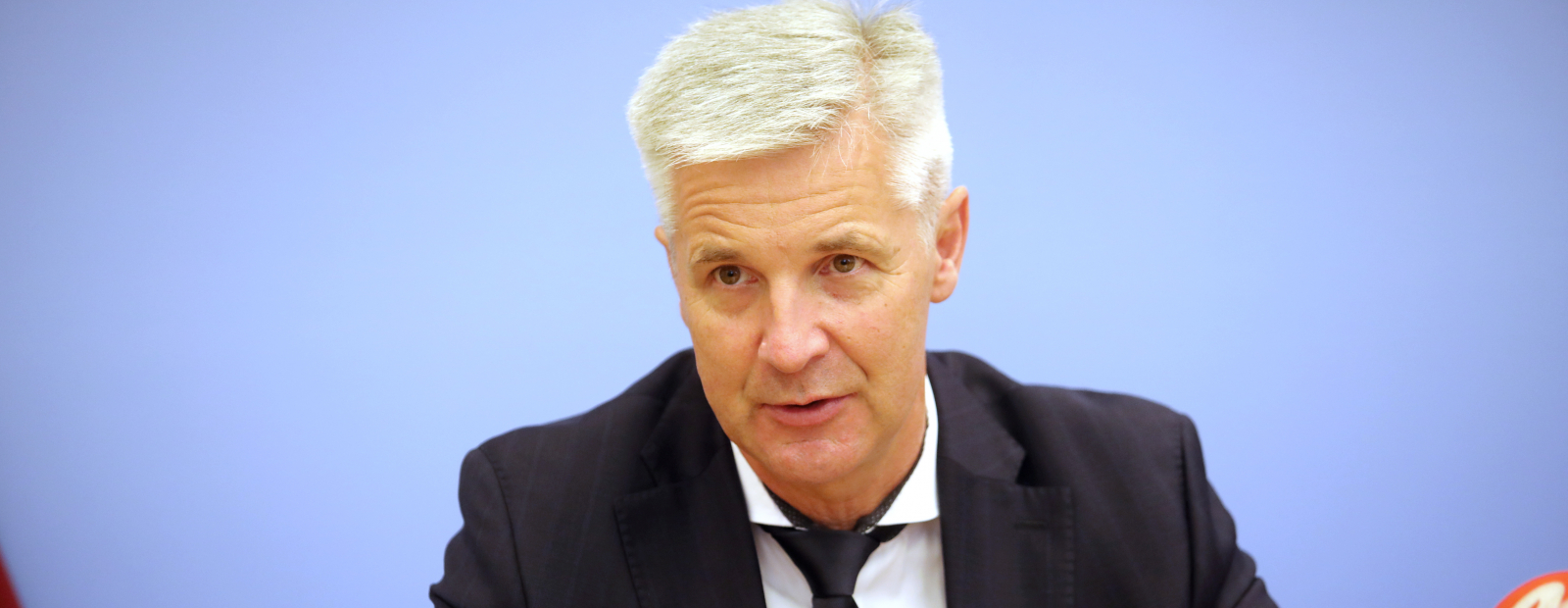Pabriks told LETA that the government should take into account the lessons learned and mistakes made in the spring when stepping up precautionary measures. For example, in order to avoid misunderstandings, words related to lists of essential goods should not be mentioned.
The Minister explained that decisions on additional restrictions must be justified, namely how they will be able to limit the spread of Covid-19. “Let’s not create a situation where we make a decision just because something has to be accepted and efficiency is only a few percent. It is useless,” the minister stressed.
At present, it seems that the government will not be able to avoid a situation where greater restrictions should be imposed on the unvaccinated population of Latvia, as this practice is used in several Western countries. However, the Minister added that such restrictions should be limited to events that can gather more people. For example, the availability of supermarkets only for Latvians vaccinated against Covid-19 is, in his opinion, an exaggerated proposal and the problem can be solved by controlling the number of people and the use of masks.
According to the Minister, declaring a state of emergency means taking some decisions at a faster pace or in a faster way. “However, the question remains, which prevents us from doing so at the moment. “said Pabriks, adding that the restrictions previously used during the pandemic are outdated and unusable, such as the curfew.
The rumors that the army with the deployment of field hospitals could help the civilian medical system are critical. In the spring, the army received specialized medical care tents with modern equipment or Role1 equipment, but there are multilevel hospitals and Role 1 is only the first level that is not suitable for combating Covid-19. There is no other level of equipment at the disposal of the army.
“The defense sector does not have the medical resources needed to combat the Covid-19 pandemic. The army is not a patch for all societal problems – we are already procuring medical supplies, guarding the Latvian-Belarusian border,” Pabriks explained, adding that requests for assistance from the Ministry, the Defense Department will evaluate them.
However, in order to promote faster and greater coverage of vaccination against Covid-19, the Minister would support the proposal for seniors over the age of 60 to pay for vaccination, as such an incentive mechanism is also used in other countries and could pay off.
There is currently no political support for declaring a state of emergency due to the proliferation of Covid-19.
Unofficial information suggests that the coalition has reached a political agreement to leave educational institutions open even in the event of a sharp rise in the incidence of Covid-19. It is possible that as early as Thursday, the government could agree to the proposal to pay seniors over the age of 60 for the fact of vaccination. Such an allocation would also apply to those who have been vaccinated so far.
Meanwhile, the re-declaration of the state of emergency, which the Minister of Health Daniels Pavļuts (AP) spoke about as a version on Monday, has not yet received political support. Several political forces in the coalition are opposed to declaring a state of emergency.
In order to cope with the projected increase in Covid-19 inpatients, the Ministry of Health could be instructed to involve resources from private medical institutions and universities in the process. The National Armed Forces could also be involved in this process, preparing field hospitals if necessary.
It is planned that great emphasis will continue to be placed on activating the vaccination process, encouraging people to vaccinate in various ways.
At the same time, the possibility of prohibiting the unvaccinated from shopping in “secondary stores” in person is discussed, which means that shopping opportunities could be maintained only in grocery stores, pharmacies, optical stores. Unvaccinated people could only shop remotely in “secondary stores”, but there are still various levels of discussion about this, according to unofficial information.
Meanwhile, Latvian Television reports that, according to unofficial information, the introduction of the so-called “arcade” for three weeks and the extension of students’ leisure time is being evaluated, as well as the possibility to allow only vaccinated people to work in person and receive services.
Andris Vitenburgs, the press secretary of the Minister of Justice Jānis Bordāns (JKP), told LETA that there is currently no “arcade” for Covid-19 vaccinated persons, but the new restrictions that will be introduced will affect vaccinated persons as little as possible.
The Crisis Management Council discussed the possibility of imposing restrictions on non-vaccinated people in Covid-19, such as a ban on access to services, visits to supermarkets, and the obligation to vaccinate in all workplaces where there is contact with the public, whether public or private.
In Bordan’s view, the restrictions must be such as to affect as little as possible the freedoms and interests of the vaccinated persons and not to affect economic activity.
The Minister of Education and Science Anita Muižniece (JKP) said on Tuesday after the government meeting that the discussion on the extension of leisure time is a myth.
At Tuesday’s Crisis Management Council, the parties failed to reach a common vision of further action and strengthening restrictions by agreeing to continue discussions and return to the issue on Thursday.
–

